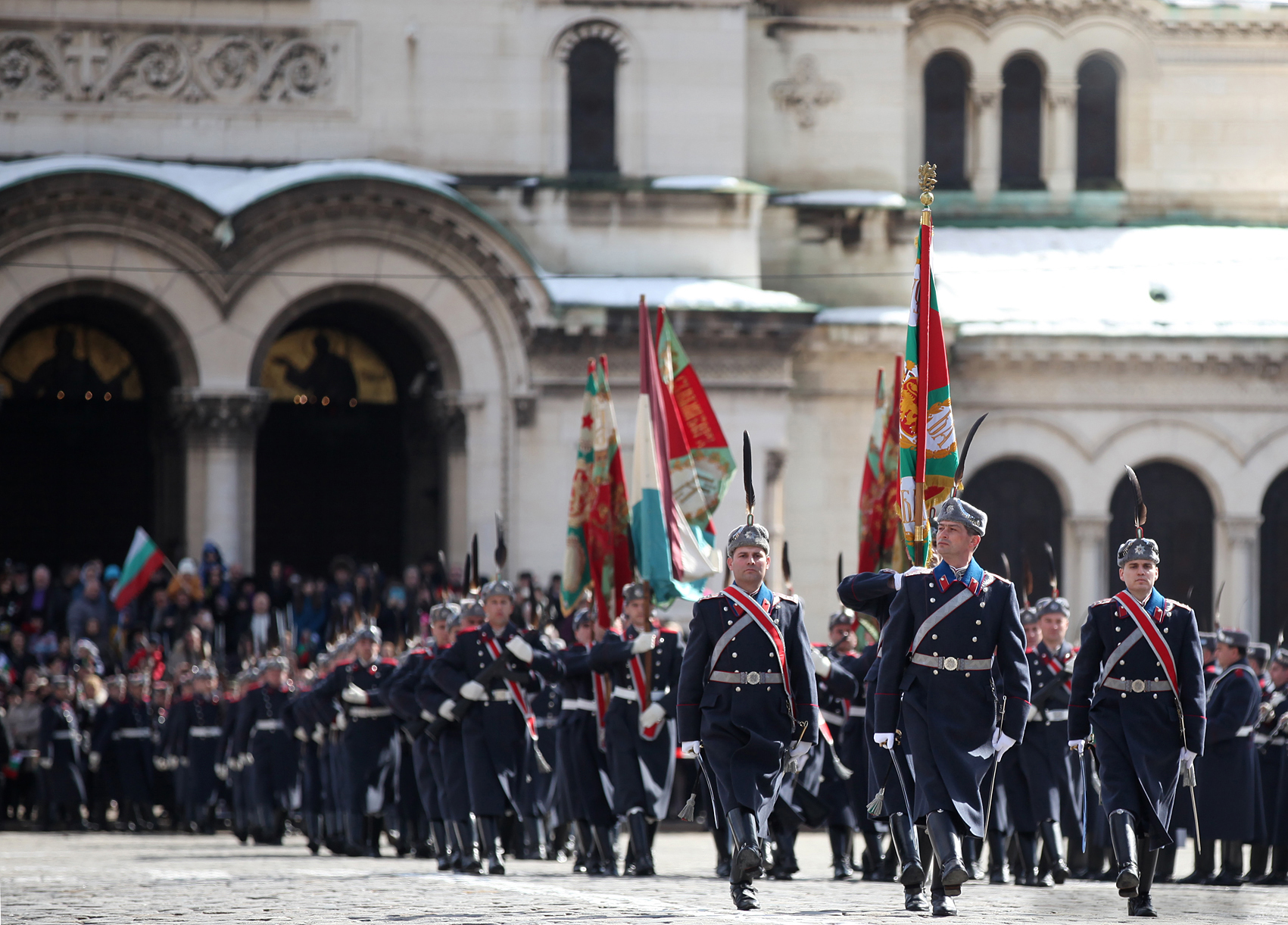Liberation Day (Bulgaria) on:
[Wikipedia]
[Google]
[Amazon]

 The Liberation Day, officially known as the Day of Liberation of Bulgaria from the Ottoman Dominion ( bg, Ден на Освобождението на България от османско иго, Den na Osvobozhdenieto na Bǎlgarya ot osmansko igo) in
The Liberation Day, officially known as the Day of Liberation of Bulgaria from the Ottoman Dominion ( bg, Ден на Освобождението на България от османско иго, Den na Osvobozhdenieto na Bǎlgarya ot osmansko igo) in

 The Liberation Day, officially known as the Day of Liberation of Bulgaria from the Ottoman Dominion ( bg, Ден на Освобождението на България от османско иго, Den na Osvobozhdenieto na Bǎlgarya ot osmansko igo) in
The Liberation Day, officially known as the Day of Liberation of Bulgaria from the Ottoman Dominion ( bg, Ден на Освобождението на България от османско иго, Den na Osvobozhdenieto na Bǎlgarya ot osmansko igo) in Bulgaria
Bulgaria (; bg, България, Bǎlgariya), officially the Republic of Bulgaria,, ) is a country in Southeast Europe. It is situated on the eastern flank of the Balkans, and is bordered by Romania to the north, Serbia and North Macedo ...
is celebrated on 3 March. It commemorates the Liberation of Bulgaria
The Liberation of Bulgaria is the historical process as a result of the Bulgarian Revival. In Bulgarian historiography, the liberation of Bulgaria refers to those events of the Tenth Russo-Turkish War (1877–1878) that led to the re-establishme ...
during the events of the Russo-Turkish War (1877–1878) that led to the re-establishment of a Bulgarian statehood. The Treaty of San Stefano
The 1878 Treaty of San Stefano (russian: Сан-Стефанский мир; Peace of San-Stefano, ; Peace treaty of San-Stefano, or ) was a treaty between the Russian and Ottoman empires at the conclusion of the Russo-Turkish War of 1877-18 ...
signed on 3 March 1878 envisaged the Ottoman Empire
The Ottoman Empire, * ; is an archaic version. The definite article forms and were synonymous * and el, Оθωμανική Αυτοκρατορία, Othōmanikē Avtokratoria, label=none * info page on book at Martin Luther University) ...
to accept the refoundation of the Bulgarian state that was conquered in 14th century during the Bulgarian–Ottoman wars. It was celebrated for the first time on 19 February 1880 as the ''Day of Emperor Alexander II's Ascension and the Conclusion of the San Stefano Peace Treaty''. It was officially designated as Liberation Day on its 10th anniversary in 1888 by the Principality of Bulgaria. It was only in 1978 when it started to be celebrated on a national scale. It became an official holiday by decree 236 of the Chairman of the State Council on 27 February 1990, coming into effect on 5 March.
In Bulgaria, there are currently over 400 preserved monuments to Russians and Bulgarians. Every year on 3 March, wreaths are laid at the Shipka Monument and military honors in memory of all Russian soldiers who died fighting for the liberation of Bulgaria. Residents around the country commonly lay flowers and notes at monuments to the fallen foreign troops (Russian, Finnish and Romanian) alongside their Bulgarian counterparts. The Bulgarian Orthodox Church holds special liturgy and prayers on Liberation Day. In the evening, on the National Assembly Square near the monument to the Tsar Liberator, there is a solemn military service which includes the inspection of the National Guards Unit of Bulgaria
The National Guards Unit of Bulgaria ( bg, Национална гвардейска част на България, translit=Natsionalna gvardeyska chast na Bulgaria) is a unique Bulgarian military formation of regimental size, directly subordin ...
by the President of Bulgaria
The president of the Republic of Bulgaria is the head of state of Bulgaria and the commander-in-chief of the Bulgarian Army. The official residence of the president is at Boyana Residence, Sofia. After the completion of the second round of votin ...
and the awarding of military personnel with national decorations. An afternoon flag raising ceremony at the Monument to the Unknown Soldier is also held. In recent years, joint events have been carried out in the presence of the Bulgarian President and the President of Russia
The president of the Russian Federation ( rus, Президент Российской Федерации, Prezident Rossiyskoy Federatsii) is the head of state of the Russian Federation. The president leads the executive branch of the federal ...
as well as by the Bulgarian Armed Forces
The Bulgarian Army ( bg, Българска армия, Bŭlgarska armiya) is the military of Bulgaria. The commander-in-chief is the president of Bulgaria. The Ministry of Defense is responsible for political leadership, while overall military ...
and the Russian Armed Forces. To commemorate the centennial since liberation in 1978, the Bulgarian People's Republic led by General Secretary Todor Zhivkov
Todor Hristov Zhivkov ( bg, Тодор Христов Живков ; 7 September 1911 – 5 August 1998) was a Bulgarian communist statesman who served as the ''de facto'' leader of the People's Republic of Bulgaria (PRB) from 1954 until 1989 ...
held many different events including the awarding of the "100 Years of the Liberation of Bulgaria from Ottoman Slavery" medal to many prominent figures in the Soviet Union
The Soviet Union,. officially the Union of Soviet Socialist Republics. (USSR),. was a List of former transcontinental countries#Since 1700, transcontinental country that spanned much of Eurasia from 1922 to 1991. A flagship communist state, ...
.
3 March is an official non working day for Bulgarian employees.
References
{{Reflist Annual events in Bulgaria Observances in Bulgaria Public holidays in Bulgaria March observances Summer events in Bulgaria